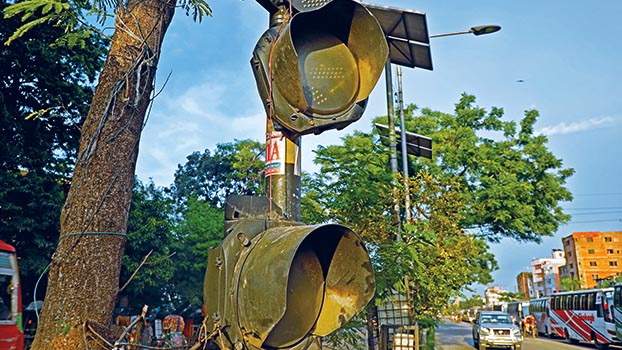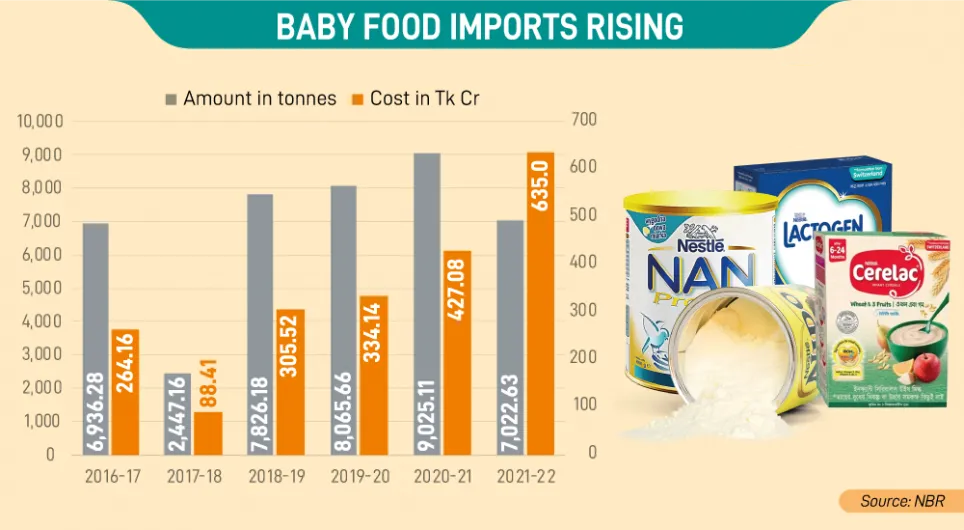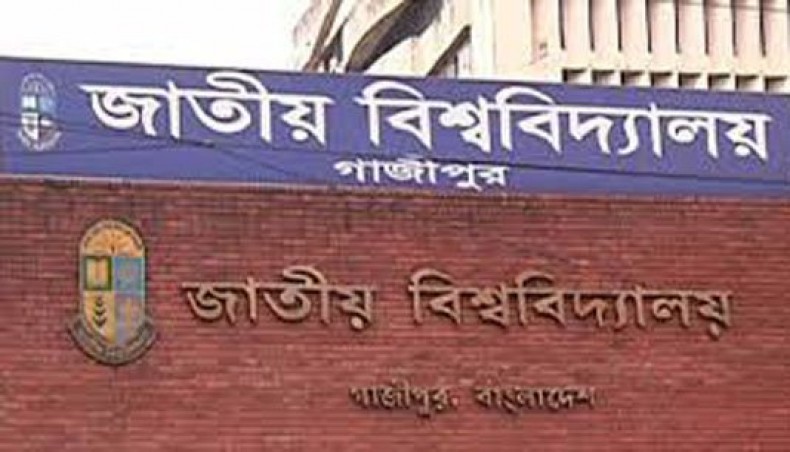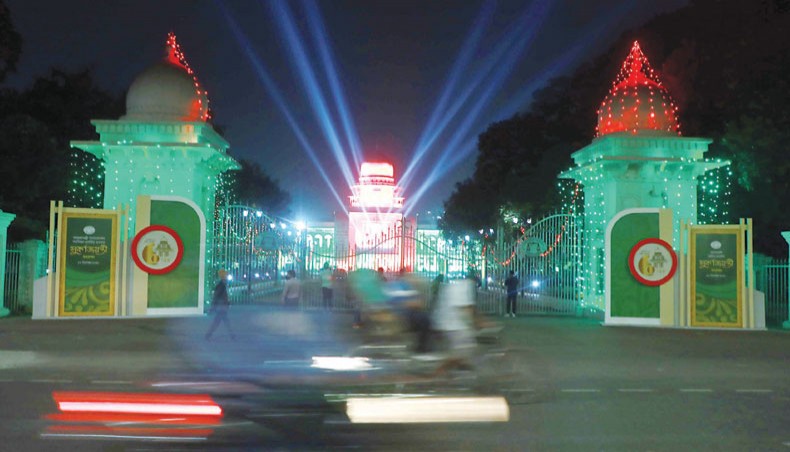Automated traffic signals in city’s most important and busiest intersections are lying idle for years despite the fact that it was installed around 15 years ago with a view to easing traffic congestion in the capital.
Through the government has spent a huge amount of money for this project, it has failed utterly to bear any fruit for the city dwellers as the traffic police still control the traffic manually, without availing of the amenities offered by the digital signals.
In 2005, seventy traffic signals were installed at major intersections of the city at a cost of Tk 13 crore under the World Bank-funded Dhaka Urban Transport Project.
In October 2009, the two city corporations in the capital installed timer countdown systems at 70 intersections and 30 new signals in the same year at a cost of Tk 96.71 lakh under WB funded Clean Air and Sustainable Environment project.
There are at least 17 big and 14 small digital display boards at key points of the city, set up at a cost of Tk 27 crore by the DMP, to remind drivers and others of the traffic rules and speed limits, which are not being operated by the traffic police.
However, in 2018, Dhaka South City Corporation (DSCC) started re-using time-controlled automated traffic signals to control traffic at 20 points in the capital on a trial basis.
DSCC imported 138 remotes for 88 intersections at a cost of Tk 270 million under Clean Air and Sustainable Environment (CASE) project.
The lights were made operational in the Bangla Motor, Hotel Intercontinental intersections, Shahbag, Rajarbag, Fakirapul, Gulisthan, Doinik Bangla, Paltan, Kakrail, Nightingle intersection, Bangabhaban, MatshaBhaban, Kodom Peyara, Baily Road, Dhanmondi 27, Russel Square, Dhanmondi 10 and Dhanmiondi 7 intersections on an experimental basis.
However, police were found operating traffic manually at most of these intersections.
Owing to such mismanagement and inefficiency, the average traffic speed in the capital dropped in 12 years, from 21 kilometres an hour to 7 kilometres (according to a World Bank study), slightly above the average walking speed, and the abominable traffic situation is showing no signs of abatement.
Abdul Haque, President of Bangladesh Reconditioned Vehicles Importers and Dealers Association (BARVIDA), told Bangladesh Post, “It’s a matter of disgrace that our capital’s traffic signal is still manual. It is not acceptable at all. There is no need for so many police personnel at different signals. The police will take action only if anyone violates the traffic rules.”
Passenger Welfare Association of Bangladesh Secretary General Mozammel Haque Chowdhury alleged that the authorities concerned were not interested in making traffic system digitalized owing to the fact that digitalising the signals would lessen the opportunity for a section of dishonest traffic police to extort money from the commuters.















